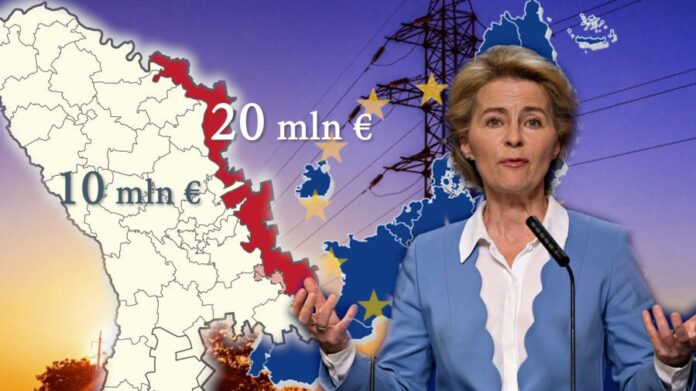Since the beginning of the energy crisis, Tiraspol has tried to paint Chisinau as the enemy and Moscow as the savior. In early January, Vadim Krasnoselski traveled to the Kremlin, promising Russian humanitarian gas within days, yet the blue fuel never reached the region.
At first, the separatists blamed Chisinau, claiming it was blocking the supplies. Then, they argued they lacked foreign currency accounts to pay for stock exchange purchases proposed by Chisinau. However, the constitutional authorities quickly debunked these false claims, pointing out that the self-proclaimed administration had previously paid for gas in Moldovan lei.
When blaming Chisinau no longer worked, Moscow stepped in, pushing narratives that the Moldovan government, Ukraine, and the West were at fault. Reports emerged about some companies that could reserve capacity and transport gas to Transnistria via alternative routes. Coincidentally, all these firms had ties to Gazprom—the Russian energy giant that had claimed it lacked the technical ability to supply Transnistria.
FOR THE MOST IMPORTANT NEWS, FOLLOW US ON TWITTER!
The European Union and Chisinau have outmaneuvered Russia in the gas standoff. Brussels granted Moldova €30 million—€20 million to purchase and deliver gas to Transnistria and €10 million to ensure electricity supply on the right bank of the Nistru River.
According to Moldova’s Ministry of Energy, importing electricity from the EU is cheaper than buying gas to supply Cuciurgan for power generation.
At first, Transnistrian authorities seemed to accept the EU’s support. Later, dissatisfied with the conditions, they repeatedly appealed to Ursula von der Leyen, demanding the aid be divided equally between both sides of the Nistru River.
In a bizarre turn, they even thanked Moscow after the EU announced its €30 million aid package. Krasnoselski went further, claiming the region would borrow money from the Kremlin to buy gas. Yet, he never explained why a loan was needed if Russia had promised humanitarian gas.
In the end, after a month of enduring the cold, Transnistrians finally have heating again—at least until February 10. The separatists celebrated the resumed supplies with fireworks, thanked the European Commission, and launched a media campaign featuring citizens expressing gratitude to Krasnoselski.


